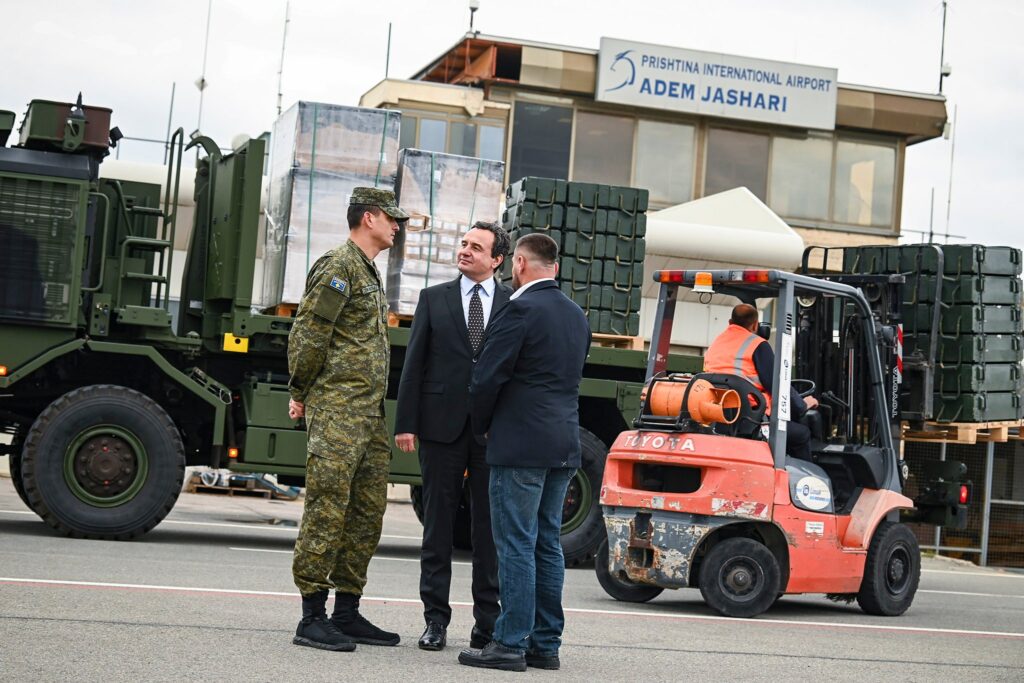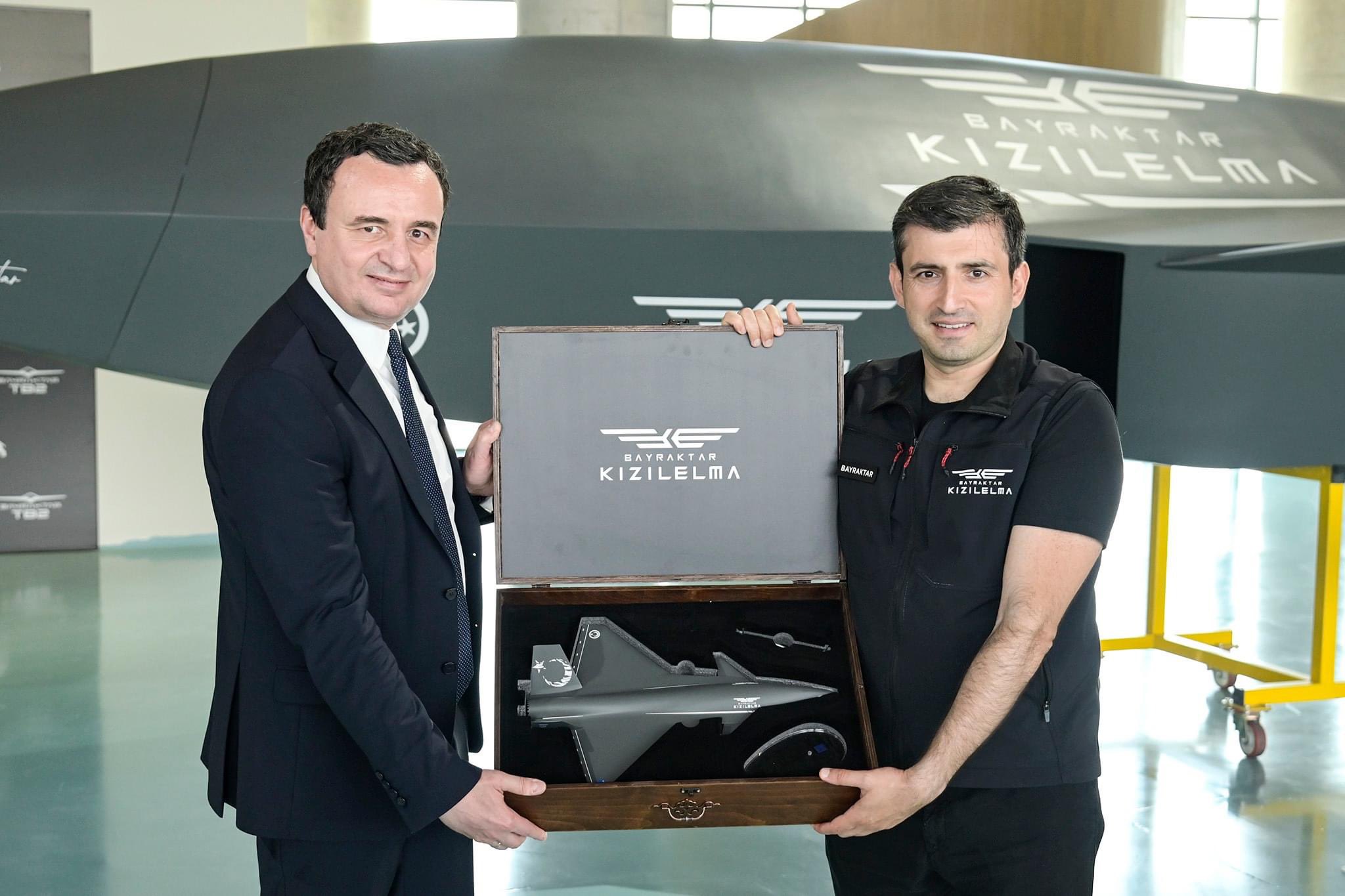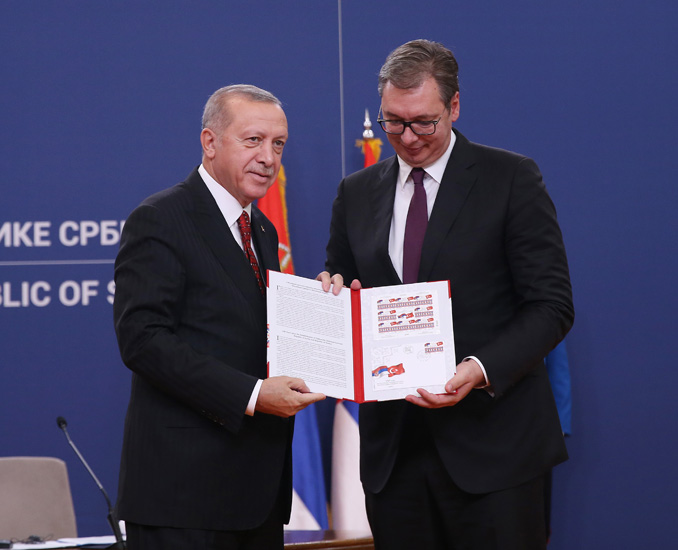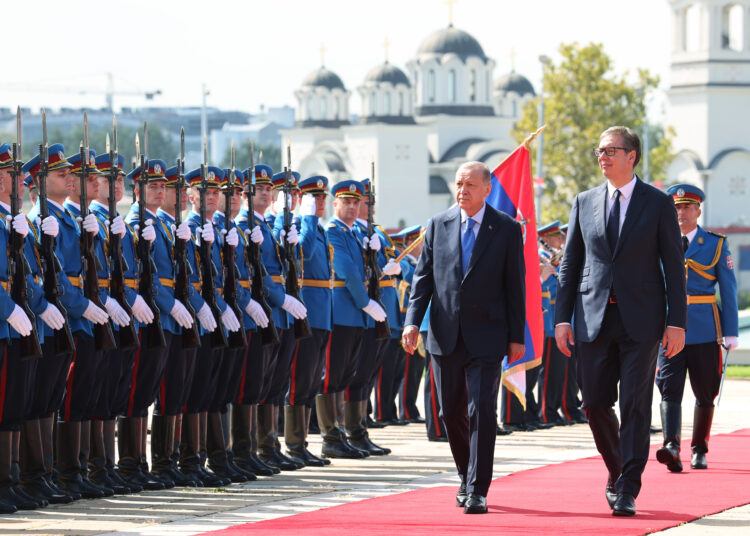Levent Kenez/Stockholm
Turkey’s sale of military drones to Kosovo has triggered one of the sharpest public disputes in years between Ankara and Belgrade, testing a relationship once driven by personal friendship between Turkish President Recep Tayyip Erdogan and Serbian leader Aleksandar Vučić.
The tension erupted this week after Kosovo confirmed that thousands of Turkish-made Skydagger drones had arrived in Pristina under a contract signed with Baykar, a defense contractor owned by Erdogan’s son-in-law Selcuk Bayraktar. Serbian President Vučić accused Turkey of endangering stability in the Western Balkans and violating UN resolutions that ended the 1999 war over Kosovo.
Speaking at a press conference in Belgrade on October 8, Vučić called the drone delivery “a brutal act against peace” and accused Turkey of trying to expand its influence in the region. “It is now clear that Turkey does not want stability in the Western Balkans,” he said. “Serbia understands their intentions and will protect its interests.”
Vučić later walked back his initial comments, saying he had reacted too harshly. On October 9 Vučić described President Erdogan as “an excellent leader.”
Behind the public outrage, however, officials in Belgrade acknowledge that Serbia had long known about Ankara’s growing military cooperation with Pristina. The Turkish and Kosovar defense ministers signed a framework agreement in January 2024 that included weapons sales, joint training and technology sharing. The deal was widely reported in both countries’ media, and Turkish Defense Minister Yasar Guler confirmed at the time that it would cover unmanned aerial vehicles.

Despite his criticism this week, Vučić had previously praised Turkey’s drones and expressed interest in buying them for Serbia. During a 2022 visit to Istanbul he described Bayraktar TB2 aircraft as “very good systems” and said Serbia was exploring options for purchase. Discussions between the two governments continued into 2023, but Belgrade withdrew after Turkey supplied drones to Kosovo and Albania. By mid-2023 Serbia announced it would not proceed with the deal, calling the decision a matter of principle.
Vučić had earlier confirmed Serbia’s wider interest in Turkish-made weapons and equipment. Speaking at the 2019 signing ceremony of a military framework agreement with Turkey, he said Serbian experts wanted to acquire specific defense systems and take part in technology transfer and joint production ventures.
In 2019 Turkey and Serbia signed a military framework agreement that allowed for joint training and exercises. Serbia ratified the deal in 2020, and Turkey approved it two years later. At the time officials said the pact was part of Ankara’s effort to expand defense diplomacy across the Balkans. The agreement aimed to promote the exchange of knowledge and experience between military education and training institutions, enable the exchange of personnel and troops and support participation in joint exercises. It also sought to strengthen contacts, visits and cooperation in the defense industry and logistics. Unlike a similar agreement signed in 2004, the new framework explicitly allowed joint military drills and training programs.
The Turkish president last visited Belgrade in October 2024 and signed 11 agreements covering trade, energy and security. At the time he called Vučić “a valued friend” and praised him for his “constructive approach to regional issues.”

Turkey’s role in the Balkans has expanded through a mix of diplomacy, investment and defense exports. Its Bayraktar TB2 and Skydagger drones are now operated by Albania, Kosovo, Bosnia and Herzegovina and Romania. The rapid spread of Turkish-made systems has unsettled Serbia, which still sees Kosovo as part of its territory and relies on support from Russia and China in opposing Kosovo’s independence.
At Pristina Adem Jashari International Airport this week, Kosovar Prime Minister Albin Kurti personally welcomed the containers carrying the new drones. “The Kosovo Security Force is becoming more capable with modern technology,” Kurti said. “These drones will strengthen our defense.” He said dozens of Kosovar soldiers had already been trained in Turkey.
Kosovo’s defense ministry said the drones were purchased directly from Baykar, the same company that supplies Ukraine and several NATO members. The value of the contract was not disclosed. Kosovo officials said the drones were ordered in December 2024 and delivered ahead of schedule.

Turkey’s defense ministry declined to comment on Serbia’s reaction. But officials in Ankara have consistently said that defense exports to the Balkans are legitimate commercial transactions carried out under international law. They also noted that Serbia has exported weapons and ammunition to the Greek Cypriot administration, which Turkey does not recognize as the Republic of Cyprus, saying the same standard should apply to Turkey’s sales in the region.
Serbia operates Chinese-made CH-92A drones and is seeking to expand its domestic defense industry. Still, Vučić’s government has used the Turkish sale to rally nationalist sentiment as it faces ongoing street protests and economic pressure from Western sanctions on companies linked to Russia.
In Serbia opposition figures accuse the government of using nationalist rhetoric to distract from economic and political challenges. Analysts in Belgrade note that Turkey’s military cooperation with Kosovo has been an open secret for years.
Baykar, founded by Selcuk and Haluk Bayraktar, has become one of the most profitable companies in Turkey’s defense industry. The firm’s success is closely tied to Erdogan’s political power. His son-in-law Selcuk Bayraktar serves as the company’s chief technology officer, while Erdogan personally promotes Baykar products during foreign visits. Critics in Ankara say the president’s backing has turned drone production into a lucrative family enterprise that blurs the line between public policy and private profit.












